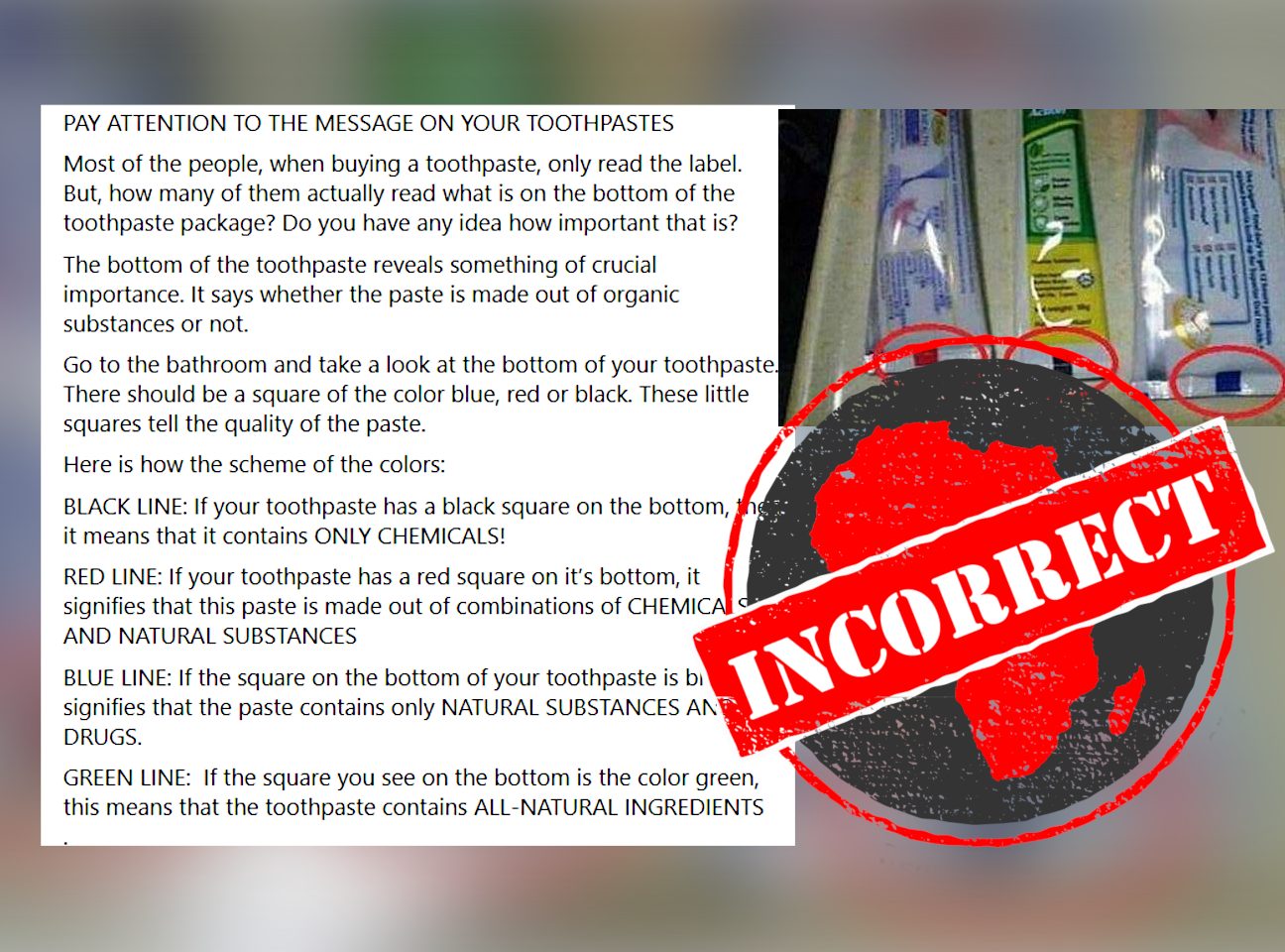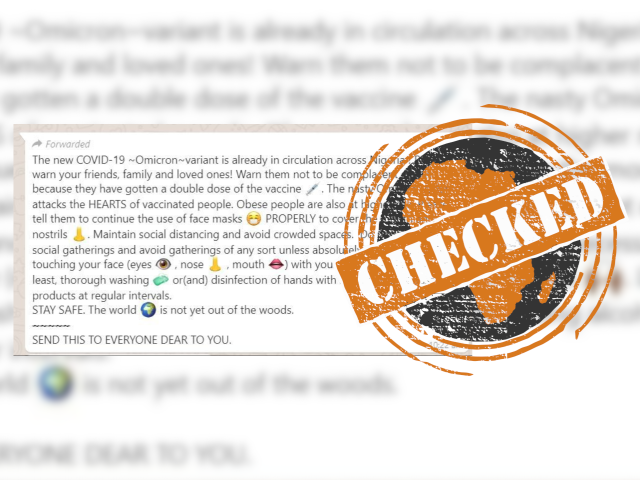“Pay attention to the message on your toothpastes,” reads a post on Facebook. “Most of the people, when buying a toothpaste, only read the label. But, how many of them actually read what is on the bottom of the toothpaste package? Do you have any idea how important that is?”
It goes on the claim that coloured markings on the bottom on toothpaste tubes show if the “paste is made out of organic substances or not”.
Supposedly a black line means the toothpaste contains “only chemicals”, a red line indicates “chemicals and natural substances” and a blue line means “natural substances and drugs”. Toothpastes with “all-natural ingredients” will be marked with a green line.
Is this true? We checked.

How much of this claim is true?
The claim has been shared online for many years. Fact-checking website Snopes debunked it in 2013, calling it “completely wrong”.
The coloured blocks are actually called “eye marks” or “colour marks”. The markings are “read by light beam sensors and typically identify where product packaging is to be cut or folded as connected units stream through machinery at high speed”. (Watch this YouTube video to see how a packaging machine reads eye marks.)
All ingredients are chemicals
The Facebook post’s warning of “only chemical” ingredients is also misleading.
“All matter is some form of chemical,” Professor Elaine Blignaut, a dental surgeon from the Wits Health Consortium, told Africa Check. “From elements to simple molecules and compound substances, organic or inorganic. Some are derived directly from nature and others are synthesised/manufactured.”
If you want to check what is in your toothpaste, US oral hygiene brand Colgate suggests looking at the ingredients list on the tube or box.
Prof Blignaut said you’ll find a number of usual ingredients such as thickening agents and surfactants, which makes the paste foam.
“Some toothpastes contain an abrasive agent to assist in removing plaque. Plaque is a sticky substance that arises when bacteria in the mouth metabolise the food we eat and unless properly removed can cause tooth decay,” says Blignaut. “To assist in leaving a ‘fresh’ sense after brushing mint is often added.”
Colgate recommends that you talk to your dentist if you are concerned about your toothpaste or the ingredients in it.
Republish our content for free
For publishers: what to do if your post is rated false
A fact-checker has rated your Facebook or Instagram post as “false”, “altered”, “partly false” or “missing context”. This could have serious consequences. What do you do?
Click on our guide for the steps you should follow.
Publishers guideAfrica Check teams up with Facebook
Africa Check is a partner in Meta's third-party fact-checking programme to help stop the spread of false information on social media.
The content we rate as “false” will be downgraded on Facebook and Instagram. This means fewer people will see it.
You can also help identify false information on Facebook. This guide explains how.





Add new comment